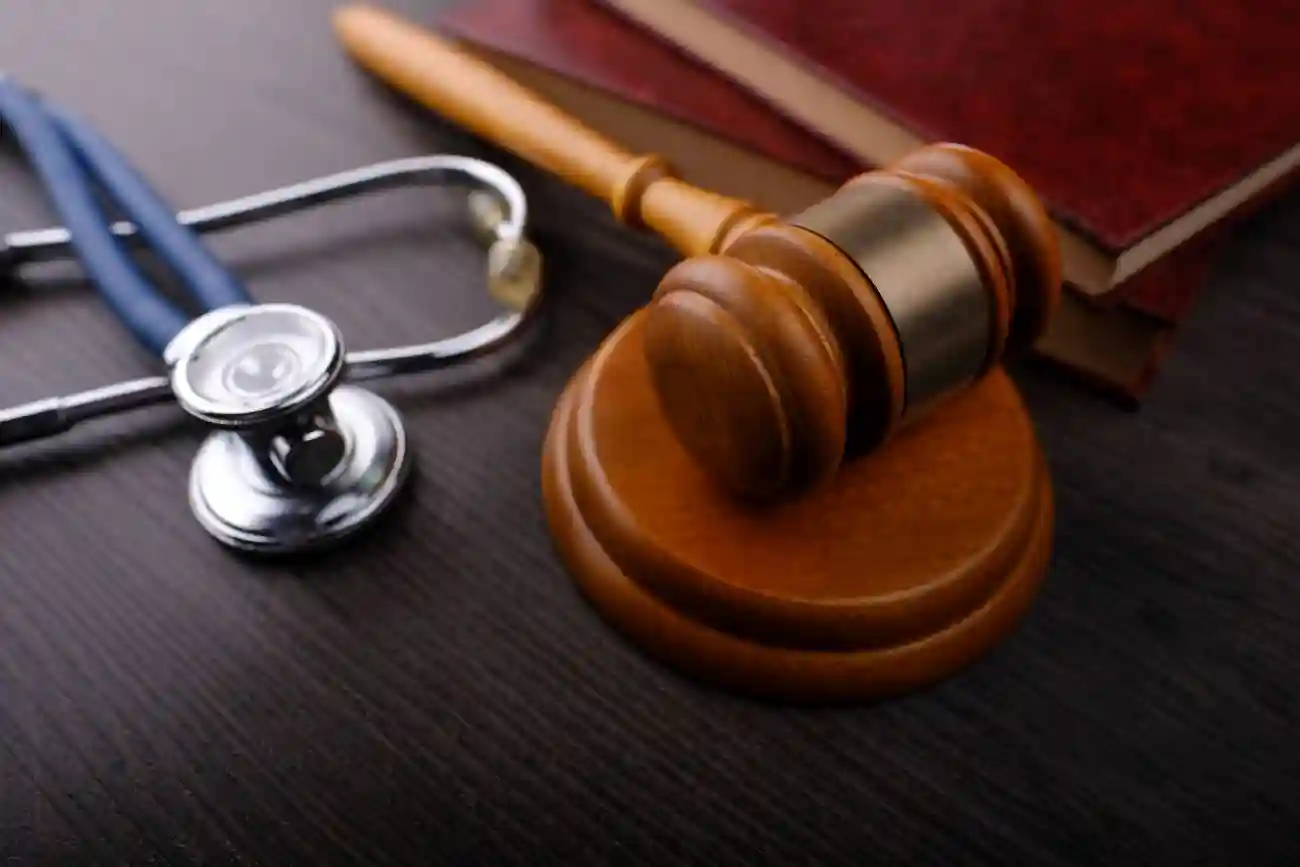
Understanding Gestational Diabetes and Its Importance
As a Failure to Diagnose Gestational Diabetes Lawyer, I understand that gestational diabetes is a type of diabetes that develops during pregnancy. It typically occurs when your body cannot produce enough insulin to meet the additional needs during pregnancy. Understanding this condition is crucial because it can pose significant health risks to both the mother and the unborn child.
During pregnancy, your body’s requirement for insulin increases, and if the pancreas cannot keep up with this demand, blood sugar levels can rise, leading to gestational diabetes. This condition is important to diagnose and manage because it can cause complications during delivery and increase the risk of type 2 diabetes later in life for both mother and child.
The importance of recognizing and diagnosing gestational diabetes cannot be overstated. Proper management can prevent potential complications such as high birth weight, premature delivery, and respiratory distress in the newborn. Therefore, timely diagnosis and intervention are essential to ensure the health of both the mother and the child.
The Role of Healthcare Providers in Diagnosing Gestational Diabetes
Healthcare providers play a critical role in diagnosing gestational diabetes. They are responsible for conducting routine screenings between the 24th and 28th weeks of pregnancy, which can help identify women at risk. These screenings typically involve a glucose challenge test, followed by an oral glucose tolerance test if initial results are elevated.
As your healthcare provider, they must be vigilant in monitoring your symptoms and medical history. They should provide guidance on managing your diet, exercise, and blood sugar levels if diagnosed. Their role extends beyond diagnosis to include ongoing support and education to help you manage your condition effectively.
Failure to diagnose gestational diabetes can be considered negligence if your healthcare provider does not follow standard procedures or guidelines. It is their responsibility to ensure that all necessary tests are conducted and that any signs of gestational diabetes are promptly addressed to avoid any adverse outcomes for you and your baby.

What Constitutes Medical Malpractice in Gestational Diabetes Cases?
Medical malpractice in gestational diabetes cases occurs when a healthcare provider fails to diagnose or properly manage the condition, leading to harm. This malpractice can happen when standard medical procedures are not followed, or if the provider does not act with the competence expected in such situations.
For a case to be considered malpractice, there must be evidence that the healthcare provider’s actions deviated from accepted medical standards and directly resulted in harm. This could include failing to order necessary tests, misinterpreting results, or not providing adequate care instructions.
If you believe that your healthcare provider’s negligence has led to complications from failing to diagnose gestational diabetes, it is crucial to seek legal advice. Understanding your rights and the standards of care expected in these situations can help you determine if you have a valid claim for medical malpractice.
Common Signs and Symptoms of Gestational Diabetes
Awareness of the common signs and symptoms of gestational diabetes can help you seek timely medical attention. Some women may not experience noticeable symptoms, which is why routine screenings are vital. However, some signs can indicate the presence of gestational diabetes.
Common Symptoms Include:
- Increased Thirst: Feeling more thirsty than usual.
- Frequent Urination: Needing to urinate more often.
- Fatigue: Unusual levels of tiredness or fatigue.
- Blurred Vision: Experiencing changes in vision.
If you notice these symptoms, it is essential to discuss them with your healthcare provider. Early detection and management can prevent complications during pregnancy and delivery. Regular check-ups and communication with your healthcare provider are vital components of prenatal care.

The Implications of a Failure to Diagnose Gestational Diabetes
Failing to diagnose gestational diabetes can have serious implications for both mother and child. The absence of timely diagnosis and management can lead to uncontrolled blood sugar levels, which can cause complications during pregnancy and delivery.
One significant implication is the increased risk of delivering a baby with a high birth weight, also known as macrosomia. This condition can lead to delivery complications, such as cesarean delivery or birth injuries. Additionally, failure to manage gestational diabetes can increase the risk of preterm birth and respiratory issues in the newborn.
For the mother, undiagnosed gestational diabetes can lead to high blood pressure and preeclampsia, a potentially life-threatening condition. It also increases the risk of developing type 2 diabetes later in life. Timely diagnosis and treatment can mitigate these risks, underscoring the importance of regular prenatal care and screenings.
Effects of Failing to Diagnose Gestational Diabetes on Mother and Child
The effects of failing to diagnose gestational diabetes are far-reaching, impacting both the mother and the child. For mothers, it can increase the risk of developing complications such as preeclampsia, which can lead to serious health issues or even be life-threatening if not managed properly.
For the child, the consequences can begin in utero and extend into later life. High blood sugar levels in the mother can lead to excessive fetal growth, resulting in a larger than average baby. This can cause delivery complications and increase the likelihood of birth injuries.
Furthermore, children born to mothers with unmanaged gestational diabetes are at a higher risk of developing obesity and type 2 diabetes later in life. This highlights the critical need for timely diagnosis and appropriate management to protect the long-term health of both mother and child.

Legal Grounds for Medical Malpractice Claims in Gestational Diabetes Cases
To pursue a medical malpractice claim related to gestational diabetes, you must establish that the healthcare provider’s negligence directly resulted in harm. This involves proving that the provider failed to adhere to standard medical practices, leading to a failure to diagnose or properly manage the condition.
Legal grounds for a malpractice claim can include not conducting routine screenings, ignoring symptoms, or providing inadequate care instructions. Documentation of medical visits, test results, and communications with your healthcare provider can be crucial evidence in supporting your claim.
Consulting with a specialized Failure to Diagnose Gestational Diabetes Lawyer can help you navigate the legal process. They can assist in gathering evidence, understanding medical records, and building a solid case to seek compensation for any harm caused by the the effects of failing to diagnose gestational diabetes.
Evidence Required to Prove Negligence in Gestational Diabetes Diagnosis
To prove negligence in a failure to diagnose gestational diabetes medical malpractice case, you need to provide compelling evidence that the healthcare provider failed to meet the expected standard of care. This involves gathering detailed medical records, test results, and any documentation of your symptoms and treatments to show the effects of failing to diagnose gestational diabetes.
Key evidence includes:
- Medical Records: Comprehensive documentation of your prenatal care, including all tests and screenings conducted.
- Expert Testimony: Opinions from medical experts who can attest to the standard of care expected and how it was not met.
- Communication Records: Emails, messages, or notes from consultations with your healthcare provider.
Working with a knowledgeable lawyer can help you compile and present this evidence effectively. Their expertise can be invaluable in demonstrating how the healthcare provider’s actions or lack thereof led to the complications you experienced.

Seeking Compensation for Complications from Failing to Diagnose Gestational Diabetes
If you have suffered complications due to a failure to diagnose gestational diabetes, you may be entitled to compensation. This can include covering medical expenses, lost wages, and pain and suffering related to the negligence you experienced.
Seeking compensation involves proving that the healthcare provider’s actions directly caused the harm. With the help of a specialized attorney, you can build a case that demonstrates the impact of the negligence on your health and well-being.
Compensation for the failure to diagnose gestational diabetes medical malpractice can provide financial relief and hold the responsible parties accountable. It can also help ensure that healthcare providers adhere to the necessary standards of care, preventing similar incidents from occurring in the future.
Support for Parents Affected by Child Birth
Support Groups:
- Birth Injury Guide
- Birth Trauma Support
- Birth & Trauma Support Group
- Peer Support Groups – PTSD: National Center for PTSD – VA.gov
National Organizations:
- Disability Rights Advocates
- Easterseals Nonprofit Organization | Easter Seals
- Project Hope
- National Healthy Start Association: Helping Babies, Parents …
- Nemours Children’s Health System
- National Association of Parents with Children in Special Education
- Federation for Children with Special Needs
Birth Injury Centers:
- Birth Injury Center
- Pregnancy, Birth and Baby
- The Birth Trauma Association
- https://www.facebook.com/childbirthinjuries/
Additional Online Support Groups:
- Birth Injury Justice Center
- Birth & Trauma Support Group
- Birth Injury Center
- DailyStrength
- Birth Trauma Association: parent support group
- NICU Parent Resources | Support After Traumatic Birth
- Birth Defect Research for Children
- Services Birth Trauma
- CPTSD Peer Support Chat Group
- Birth Injury Center Youtube Channel
- Resources for Mothers
Spinal Cord Support Groups:
- Spinal Cord Injury Support Group
- Spinal Cord Injury Support Groups
- Vanderbilt Physical Medicine and Rehabilitation
- Support Groups – MSCIA
- Spinal Cord Injury Associations & Organizations (USA)
- Spinal Cord Injury Discussion and Support Group
- Support Groups at the Center for Spinal Cord Injury
- Better Together: Spinal Cord Injury Support Groups
- https://www.youtube.com/c/BirthInjuryCenter
Trauma Support Groups::
- March of Dimes
- Birth Trauma Support
- BPI & Erb’s Only Support Group.
- BIRTH TRAUMA RESOURCES
- Birth & Trauma Support Group
- https://www.facebook.com/groups/TheBTA/
- Trauma and PTSD Support Groups in Nashville, TN
- Support Groups – TSN 2025
- Trauma Process Group
- Birth Injury – Birth Trauma
- Postpartum Support groups
- Birth Trauma – PANDAS Foundation UK
Cerebral Palsy Support Groups:
- Cerebral Palsy Guidance
- United Cerebral Palsy (UCP)
- Cerebral Palsy Support Group
- Cerebral Palsy Family Network
- Birth Injury Support Groups: Finding Your Tribe
- The Mayo Clinic
Erb’s Palsy Support Groups:
- treatments for Erb’s palsy
- Erb’s Palsy Group
- Brachial Plexus Nerve Injury and Erbs Palsy Support Group: UBPN
- Erb’s Palsy Group CIO (@erbspalsyuk)
Brachial plexus Support Groups:
- United Brachial Plexus Network (UBPN)
- Brachial Plexus Nerve Injury and Erbs Palsy Support Group: UBPN
- BPI & Erb’s Only Support Group.
- Support Group For Erb’s Palsy (@erbspalsyfriends)
- United Brachial Plexus Network
Brain Injury Support Groups:
- Brain Injury Support Group
- Office of Acquired Brain Injury (OABI)
- Comprehensive Rehabilitation Services (CRS) Program
- Brain Injury Association of America
- Traumatic Brain Injury Support Groups
- brainline.org
- Brain Injury Association of Tennessee
- braininjuryhope.org
- Traumatic Brain Injury Services
Preeclampsia Groups:
Conclusion: The Importance of Timely Diagnosis and Legal Recourse
Timely diagnosis of gestational diabetes is crucial for the health and safety of both mother and child. Healthcare providers play an essential role in identifying and managing this condition, and failure to do so can have significant consequences.
If you believe you were the victim of failure to diagnose gestational diabetes medical malpractice, it is important to understand your legal options. Consulting with a Failure to Diagnose Gestational Diabetes Lawyer can help you explore your rights and seek the compensation you deserve.
Remember, timely diagnosis and appropriate management can prevent complications and ensure a healthy pregnancy. Don’t hesitate to seek legal advice if you suspect medical malpractice, as it can provide the recourse needed to address any harm caused by negligence.
Seeking justice and compensation for complications arising from undiagnosed gestational diabetes is within your reach. Contact a specialized lawyer today to discuss your case and explore your legal options. Protect your rights and ensure that healthcare providers are held accountable for their actions. Your health and that of your child are paramount—don’t wait to take action.
Contact Failure to Diagnose Gestational Diabetes Lawyer Timothy L. Miles Today for a Free Case Evaluation
Contact Failure to Diagnose Gestational Diabetes Lawyer Timothy L. Miles for a free case evaluation today If you believe you or you child suffered failure to diagnose gestational diabetes medical malpractice,. The call is free and so is the fee unless we win or settle your case so call today and see what a Failure to Diagnose Gestational Diabetes Lawyerr can do for you. (855) 846-6529 or [email protected].
Timothy L. Miles, Esq.
Law Offices of Timothy L. Miles
Tapestry at Brentwood Town Center
300 Centerview Dr. #247
Mailbox #1091
Brentwood,TN 37027
Phone: (855) Tim-MLaw (855-846-6529)
Email: [email protected]
Website: www.classactionlawyertn.com





